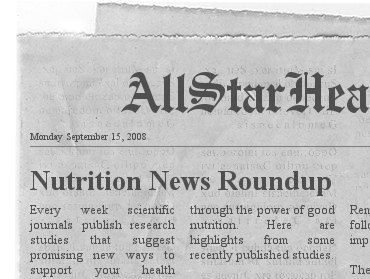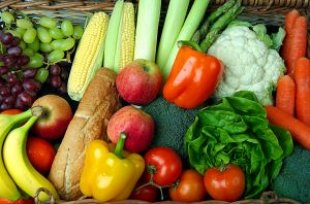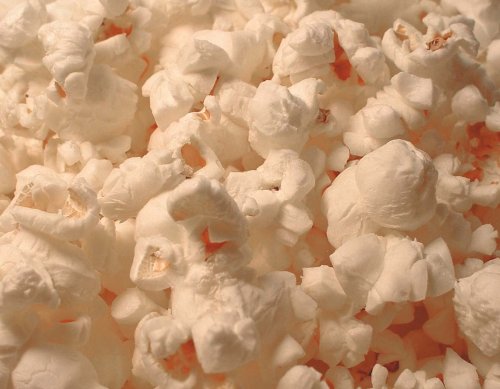Nutrition News Roundup

A stress herb that lowers cholesterol, another body blow for fructose, and a big sigh of relief for popcorn lovers. Find out what else is new in our roundup of the latest nutrition research.
It’s always good news when new uses or benefits are found for supplements that we’re already taking for other reasons. So it was a pleasant surprise to learn that familiar old Siberian “ginseng” has been found to lower cholesterol in some people. Siberian “ginseng” (which is not a true ginseng) supplements have been around for decades and the herb upon which they’re based, Eleutherococcus senticosus, has been used in traditional herbal medicine much longer than that. Siberian Eleuthero supplements, as they’re now known, are classified as adaptogens, and used to enhance endurance and resistance to the harmful effects of stress. Millions of people use Siberian eleuthero supplements each day for these reasons. They’ll be happy to learn that a newly published Korean study showed significant reductions in LDL cholesterol and improvements in LDL/HDL ratio without side-effects. The study involved postmenopausal women, so it’s not clear that these benefits will extend to other adults, then again, it’s not clear that they won’t. Siberian eleuthero takes its place alongside other cholesterol-friendly nutrients like fish oil, fiber, and red yeast rice.
More bad news on the fructose front. This new study out of Columbia University showed that chronically high fructose consumption induced leptin resistance, or resistance to the effects of the hormone leptin. Why is this bad news? You want to be sensitive to leptin, not resistant to it, since part of its job is to signal satiety, the feeling signal that your body has had enough to eat. Resistance to this signaling means more food must be consumed before you feel full enough to stop eating. Leptin physiology is an ongoing area of weight-loss research and this was an animal study, not a human study. But especially for anyone trying to lose body fat and lean up, it does add to all the other evidence arguing against any voluntary consumption of fructose. Keep in mind that fructose occurs naturally in whole fruits besides being added to many processed foods and commercial drinks. It’s the added fructose that is most unhealthy, and which you want to avoid. Whole fruits are still healthy foods!
Speaking of losing weight, it’s been a long-established concept that drinking plenty of water is important for successful weight loss, although you’ll get a wide-range of opinion about exactly how much that is. Water helps the body eliminate wastes, and keep cells hydrated for optimal function. Another notion was that water promotes satiety and a feeling of fullness, so drinking extra water at mealtimes and other times was a good way to avoid overeating. But a new Japanese study found that body mass index and waist circumference were only associated with the water intake from food, not from beverages. Since the foods with the highest natural water content are fresh fruits and vegetables, and since fresh fruits and vegetables tend to be among the most satisfying and nutritious foods, the result really isn’t so surprising. It’s still important to drink plenty of water, but if you’re trying to lose weight or lean up, it may be just as important to eat foods that contain lots of water, such as fruits and vegetables. Fresh is always best nutritionally, but even frozen and canned vegetables still deliver all the fiber and moisture of fresh forms, two key nutritional factors for successful weight loss.

- It’s still good to stay hydrated….

- ..but the high water content of fruits and vegetables is a more important factor for obesity.
Corn, especially popcorn, as well as most nuts can be healthy whole foods, especially in their natural state before being coated with fats, oils, sugar, or salt. As healthy as they are, though, many people have been told that they need to avoid these foods altogether because they’ll increase the risk or complications of diverticulosis. That’s a condition characterized by pouches that form in the walls of the colon into which food and waste matter can become impacted, possibly becoming infected and resulting in diverticulitis. The thinking is that the indigestible hulls of these seed foods are too easily trapped in these pouches, or diverticula where they can worsen the condition.
A very large study using data from almost 50, 000 men over the course of 18 years set out to establish whether there’s an association – or not – between corn, nut and popcorn consumption and an increased risk of diverticulosis or its complications like bleeding. The results were clear, with the study concluding, “In this large, prospective study of men without known diverticular disease, nut, corn, and popcorn consumption did not increase the risk of diverticulosis or diverticular complications. The recommendation to avoid these foods to prevent diverticular complications should be reconsidered.”
Good news for popcorn, corn and nut lovers. Remember, these are healthy only when minimally processed and without unhealthy fats, oils or sugars added. Forget the supermarket cans of roasted, salted, oily nuts. Go for raw nuts and add small amounts of seasoning if you like. Skip microwave popcorn and make it stovetop style using popcorn kernels and a healthy fat like coconut oil.

- Popcorn raises the risk of movie watching, but not diverticulosis.



